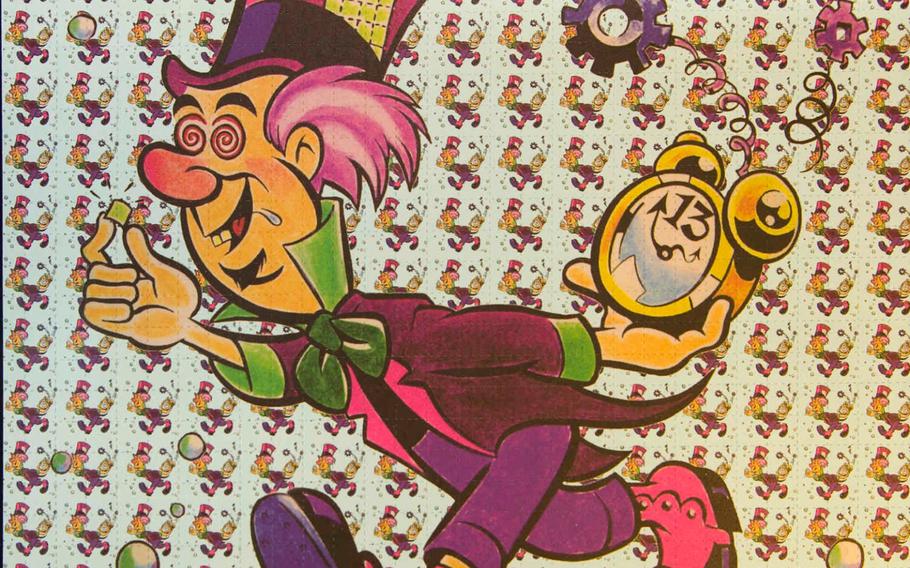
A blotter of lysergic acid diethylamide, better known as LSD or acid. The 2nd Marine Division has started randomly testing troops at Camp Lejeune, N.C., for LSD following a series of drug-related incidents, officials said on Nov. 30, 2020. (Drug Enforcement Administration)
LSD has been added to the list of drugs that are randomly tested for at Camp Lejeune in North Carolina amid suspicions that more and more Marines and sailors at the base are tripping, base officials said.
“We have a drug problem in the 2d Marine Division,” said the unit's commanding general, Maj. Gen. Francis L. Donovan, in a statement Monday. “We are changing the way in which we test for illegal substances.”
A series of drug-related incidents involving Marines and sailors was behind the decision to test for LSD in random screenings, the Corps said. In the past, Marines would typically only be screened for the hallucinogenic drug if there was probable cause.
But “all that changed following recent incidents,” 2nd Marine Division said, without providing details.
Since LSD hasn’t traditionally been tested by the Marine Corps, the division is working with the Armed Forces Medical Examiner lab in Dover, Del., to conduct “large-quantity random LSD testing.”
Some 4,000 tests have been conducted since the summer, when random testing for the hallucinogen was launched, the Corps said.
“This testing led to numerous positive results,” the division said, without specifying an exact number. “Consequently, going forward, 2d MARDIV plans to conduct random testing, locally and on a more consistent basis.”
Marines who test positive for LSD, or any other illegal drug, could face nonjudicial punishment, a dishonorable discharge or time in confinement, the Corps said.
“Zero tolerance is the Marine Corps’ stance, and Marines need to understand that there is no drug that they can take without the means for government detection,” said Lt. Col. Christian Ruwe, the staff judge advocate for the 2nd Marine Division.
Several incidents involving LSD, also known as acid, in the past 15 months indicated that the drug was becoming a problem at the base and beyond.
In September of 2019, a 23-year-old Camp Lejeune Marine was charged by the Onslow County Sheriff’s Office with trafficking LSD. And in June, the Naval Criminal Investigative Service warned that there had been numerous cases involving Department of Navy personnel who purchased LSD over the internet’s so-called “dark web” since the beginning of 2020.
A psychedelic drug that was popular among hippies and musicians in the 1960s, LSD has made a comeback in recent years. The drug modifies neural pathways, causing the user to have hallucinations and altering the perception of things such as sound and time, according to the American Addiction Centers.
But some proponents say it boosts creative problem solving. A Marine major caused a minor stir in 2019 when he wrote that military intelligence and surveillance analysts could benefit from microdoses of psychedelics like LSD and psilocybin, or magic mushrooms.
In small amounts, the hallucinogens can help people “connect seemingly unconnected pieces of information and create revolutionary new solutions,” Marine Maj. Emre Albayrak wrote in the Marine Corps Gazette in February last year.
Some medical studies have also suggested that drugs like LSD and magic mushrooms have potential benefits for those who suffer from post-traumatic stress disorder.
vandiver.john@stripes.com Twitter: @john_vandiver